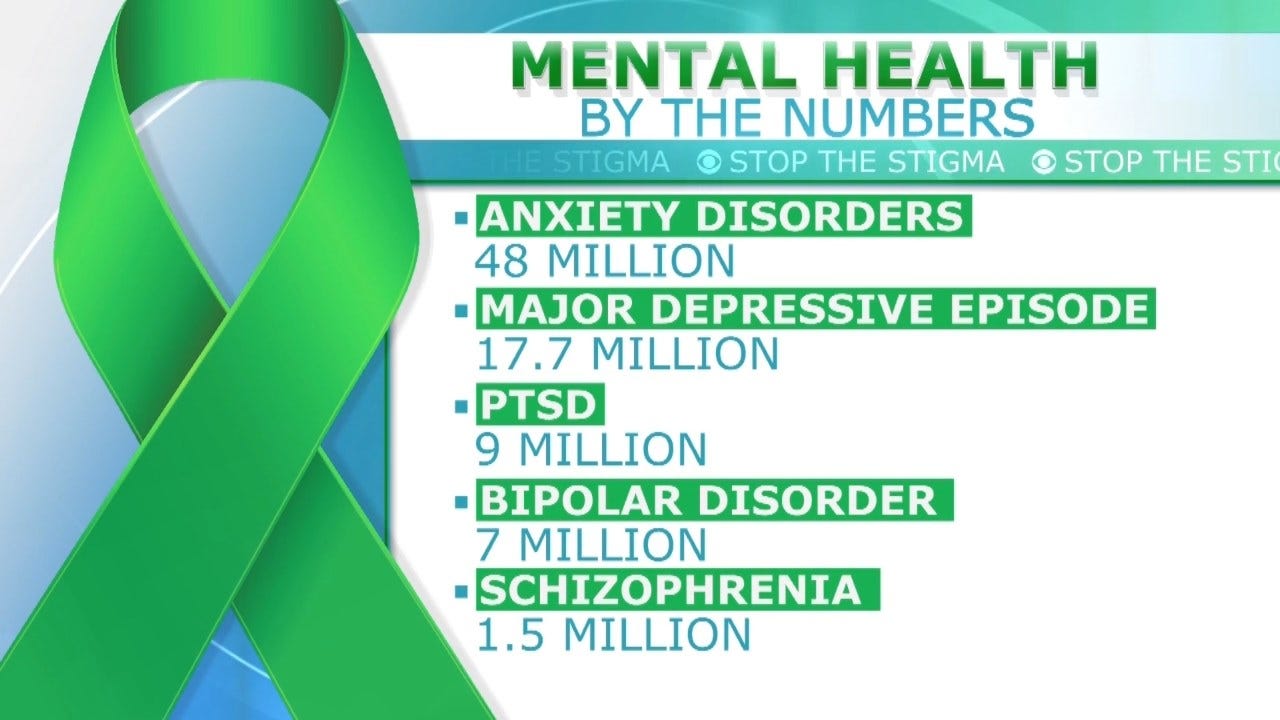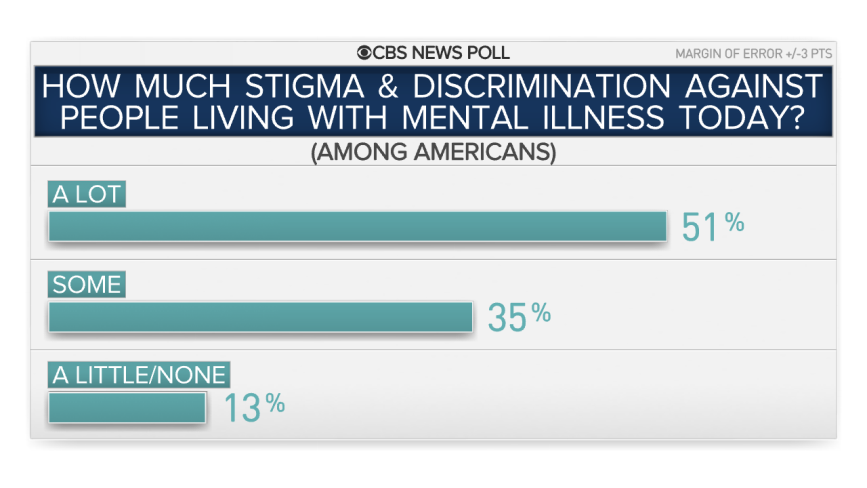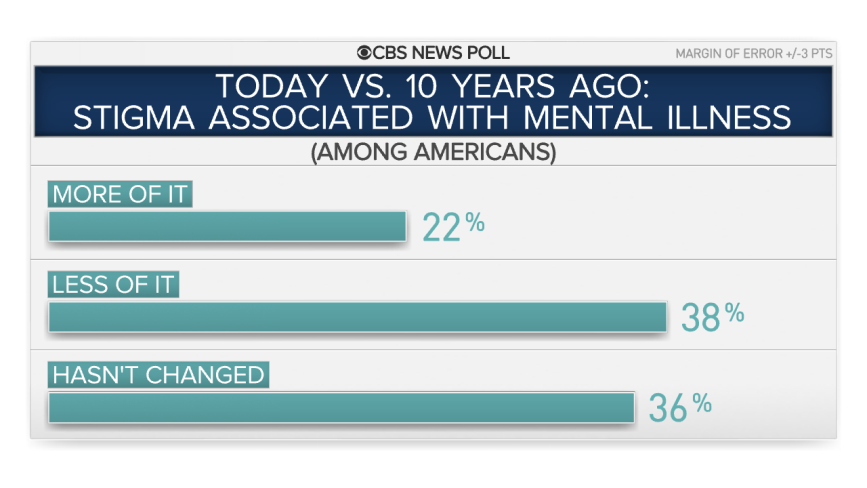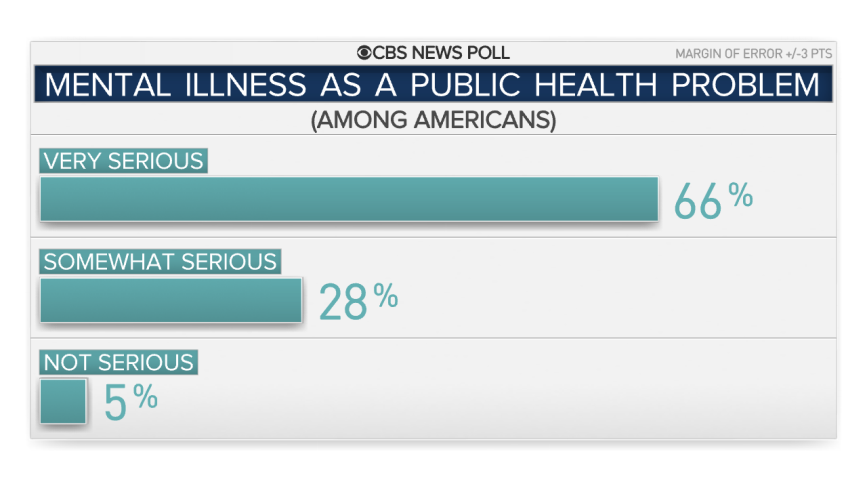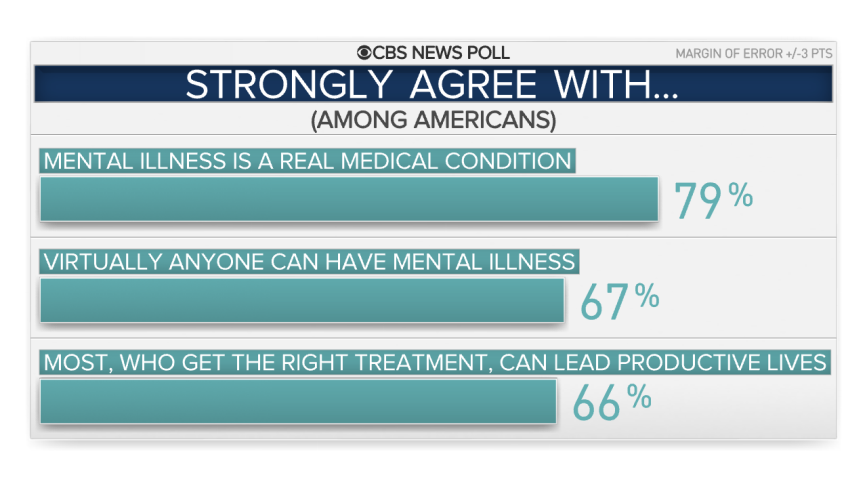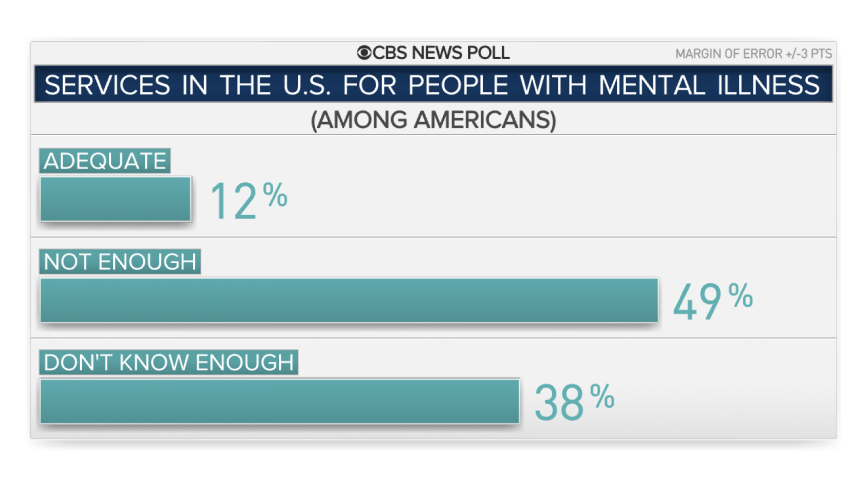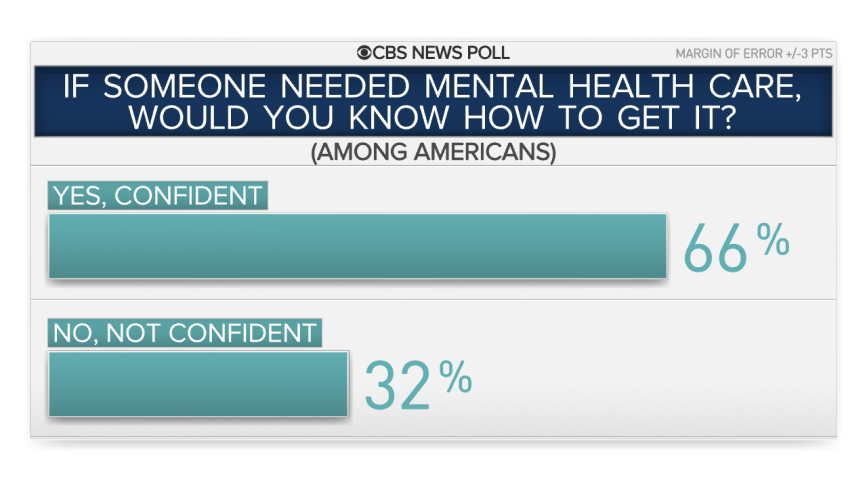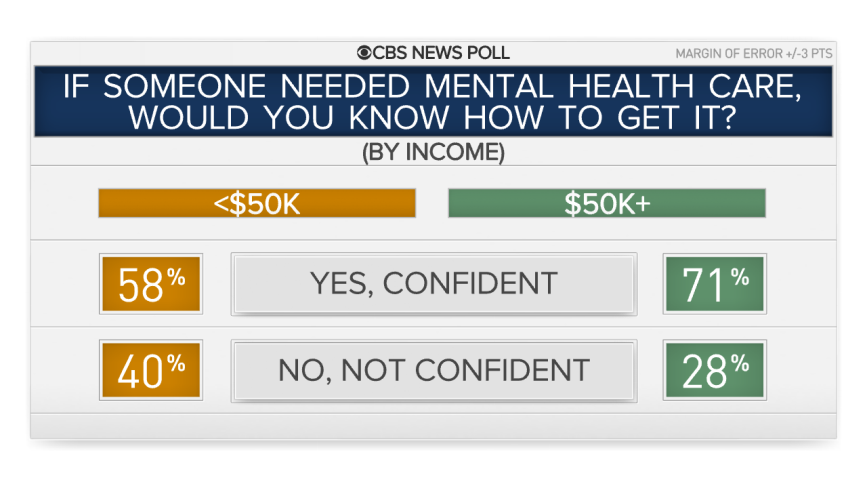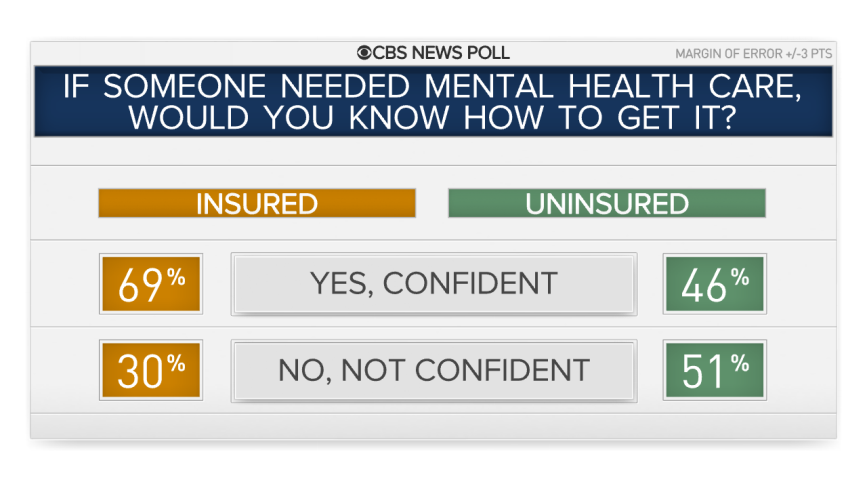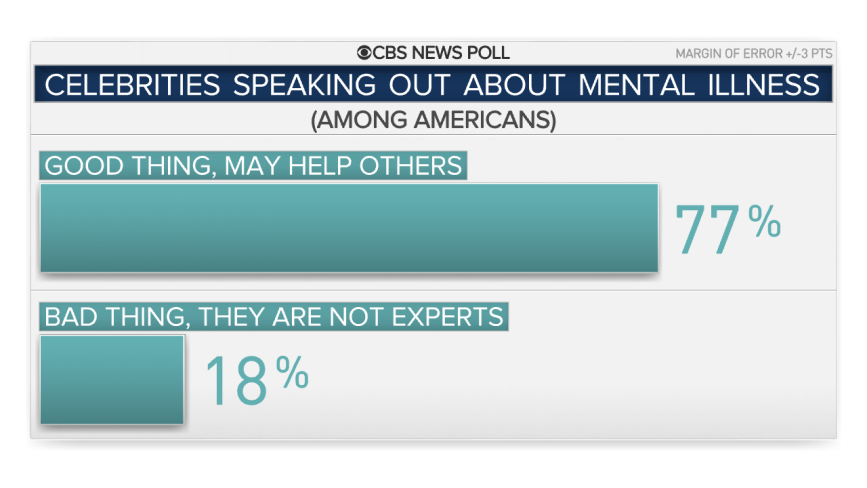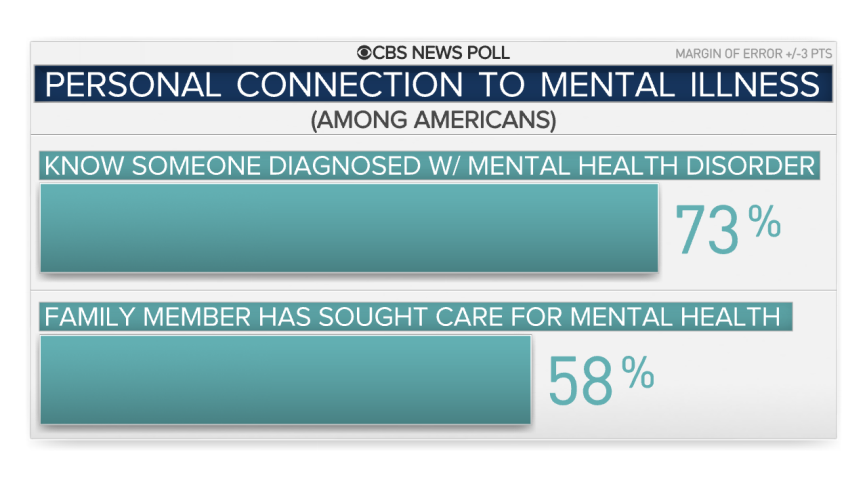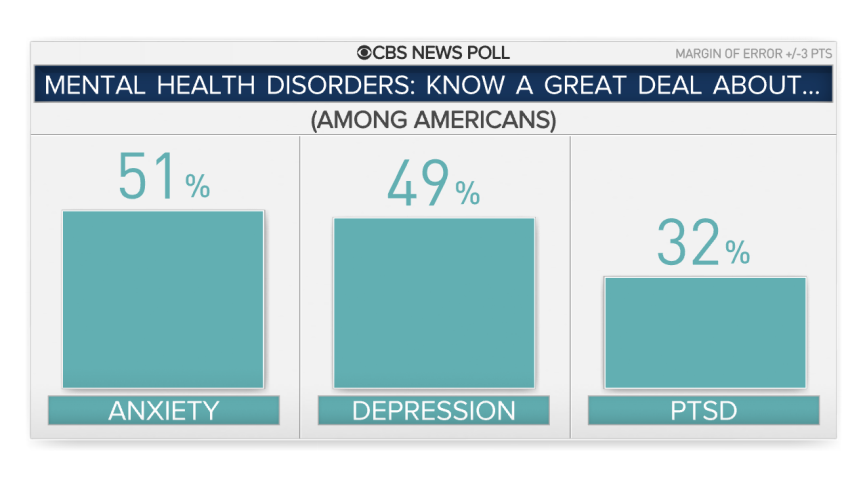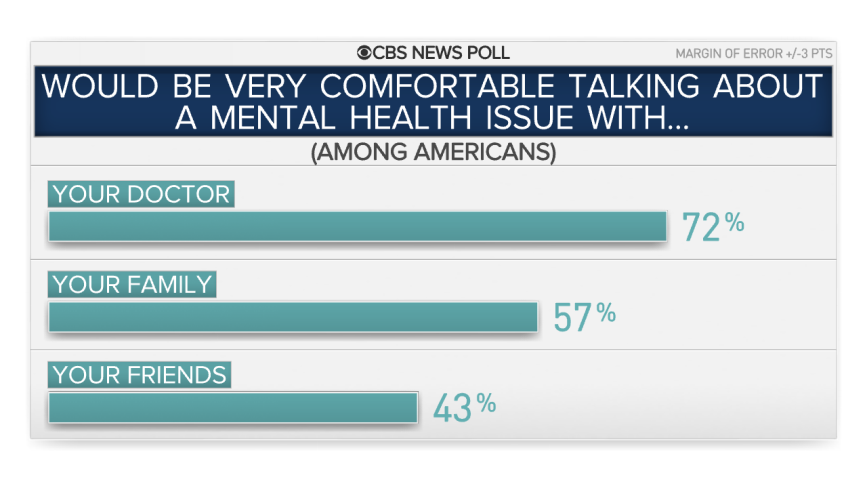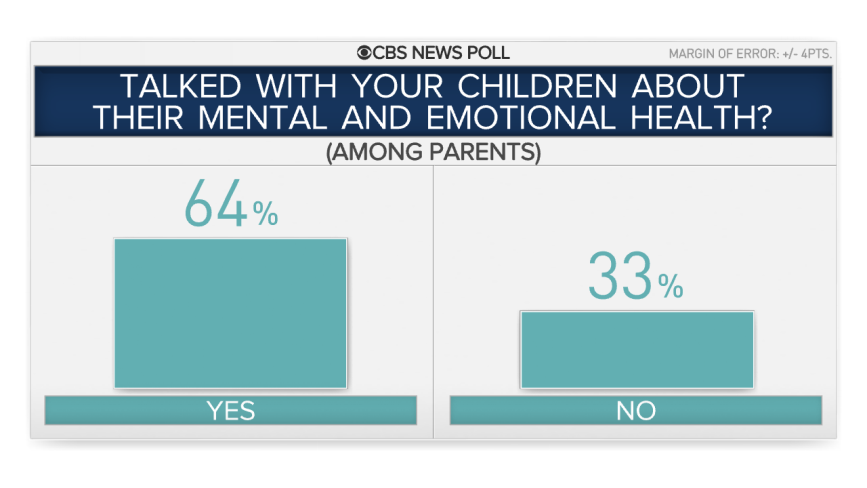Most Americans Think There Is Stigma Associated With Mental Illness: CBS News Poll
Two in three Americans think mental illness is a very serious public health problem, and few say there are adequate services and support in the U.S. for people living with it.Wednesday, October 23rd 2019, 10:33 am
Two in three Americans think mental illness is a very serious public health problem, and few say there are adequate services and support in the U.S. for people living with it. Nearly nine in 10 do think there is at least some stigma and discrimination associated with mental illness in society today, but more than a third say there is less compared to 10 years ago. And this health issue is personal for most Americans: a majority say they personally know someone who has been diagnosed with a mental health disorder.
More than a third of Americans believe there is less discrimination and stigma associated with mental illness, but nearly as many do not feel much has changed compared to 10 years ago.
Whether they think perceptions have changed or not, a majority of Americans view mental illness as a serious public health problem.
However, most Americans express some hopeful views regarding people living with mental illness. Large majorities view mental illness as a "real medical condition" and strongly agree with the statement: "virtually anyone can have a mental illness." Most - 66% - also strongly agree that "most people with mental illness, who get the right treatment, can lead productive lives."
While most think treatment can help, many think the U.S. comes up short in providing services for mental health. Just 12% think there are adequate services and support for people living with mental illness. Half of Americans say there are not enough services - a number that rises to 60% among those who have a family member who has sought care from a mental health professional.
While most Americans are confident they would know how to go about getting mental health care for a friend or family member who needed it, a third are not.
Lower income Americans and those without health insurance are less likely to be confident.
Also, cost can be an obstacle for some in getting care. One in five Americans (18%) say someone in their household has had problems getting mental health care because of the cost. Those without health insurance (31%) are twice as likely as those who have it (16%) to say someone in their household has had problems getting mental health care because of the cost.
A large majority of Americans (84%) think employers that offer health coverage to their employees should be required to cover treatment for mental health as well. Only 13% think that should not be required.
SPEAKING OUT ABOUT MENTAL ILLNESS AND PERSONAL EXPERIENCE
Some celebrities and people in public life have spoken out about their experience with mental illness and most Americans see that as a positive. Three in four say it's a good thing for celebrities and people in public life to speak out because they may help others living with mental illness.
Most Americans themselves have some personal connection to the issue of mental illness. A majority (73%) say they personally know someone who has been diagnosed with a mental health disorder or illness. Nearly six in 10 report having a family member who has sought care from a mental health professional at some point.
Americans with a family member who has seen a mental health professional view mental illness as more serious and believe there is more stigma attached to it, compared to those who don't have a family member in this situation.
And while many Americans overall feel they know at least something about some mental conditions and their symptoms like anxiety, depression and PTSD, as might be expected, those with a personal connection to mental illness are more familiar with these conditions.
Overall, more Americans say they know a great deal about anxiety and depression than they do about PTSD.
HOW COMFORTABLE WOULD AMERICANS BE TALKING ABOUT THEIR OWN MENTAL HEALTH?
Americans would be more comfortable talking about their mental health with their doctor and family than with some other groups. Majorities say if they were experiencing an issue with their mental health, they would feel very comfortable talking about it with their doctor (72%) and their family (57%). Fewer than half (43%) would feel that level of comfort discussing it with their friends. Fewer say they would feel very comfortable talking about a mental health issue with a religious leader or a teacher or educator, but most would be at least somewhat comfortable doing so.
Mental health is a topic most have discussed with their children. Nearly two-thirds of parents say they have talked with their children about their mental and emotional health to find out if their children are experiencing any problems.
VIEWS ON MENTAL HEALTH: SOME DEMOGRAPHIC DIFFERENCES
- Younger Americans — those ages 18 to 29 — are the most likely age group to view mental illness as a very serious public health problem (74%). Those ages 65 and over are the least likely (56%) to view it that way, although a majority of them still do.
- Younger Americans report having more knowledge about some mental health conditions than older Americans do. This is particularly the case regarding anxiety. 68% of those under age 30 say they know a great deal about the condition and symptoms of anxiety — the highest of any age group.
- There are some gender differences too. Majorities of both men and women say mental illness is a very serious problem, but more women (71%) than men (62%) hold that view. And 57% of women think there's a lot of discrimination or stigma associated with mental illness, compared to fewer than half of men (44%).
- Still, if they were experiencing an issue with their own mental health, women would generally be more comfortable than men talking about it. Half of women (50%) say they would be very comfortable discussing their mental health with friends, but just 36% of men say that.
This poll was conducted by telephone September 26 – October 2, 2019 among a random sample of 1,292 adults nationwide. Data collection was conducted on behalf of CBS News by SSRS of Glen Mills, PA. Phone numbers were dialed from samples of both standard land-line and cell phones.
The poll employed a random digit dial methodology. For the landline sample, a respondent was randomly selected from all adults in the household. For the cell sample, interviews were conducted with the person who answered the phone. Interviews were conducted in English and Spanish using live interviewers. The data have been weighted to reflect U.S. Census figures on demographic variables.
The error due to sampling for results based on the entire sample could be plus or minus three percentage points. The error for subgroups may be higher and is available by request. The margin of error includes the effects of standard weighting procedures which enlarge sampling error slightly. This poll release conforms to the Standards of Disclosure of the National Council on Public Polls.
More Like This
October 23rd, 2019
January 2nd, 2025
September 29th, 2024
Top Headlines
May 15th, 2025

